- 1934
- 1939
- 1946
- 1955
- 1964
- 1965
- 1969
- 1972
- 1976
- 1980
- 1981
- 1985
- 1987
- 1994
- 1998
- 2002
- 2006
- 2010
- 2015
- 2018
- 2019
-
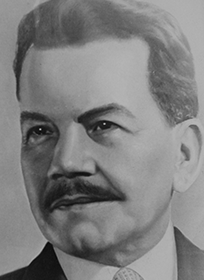
PEDRO AGUIRRE CERDA
DEAN
The Universidad de Chile created the School of Commerce and Industrial Economy, precursor of today’s School. Our first institutional home was a mansion house in Compañía Street, Santiago.
-
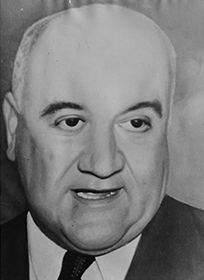
GUILLERMO DEL PEDREGAL HERRERA
DEAN
During Professor Del Pedregal’s time as Dean, the University Council began to award our graduands the degree of Commercial Engineer. In 1945, thanks to the initiative of Jorge Marshall, Hermann Max, and Flavián Levine, an Economics Institute was created to deepen scholarship and research in the fields of general economics and Chilean economic issues.
-
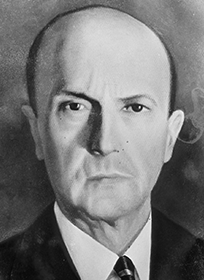
RAFAEL CORREA
DEAN
During this period the curriculum was intensified, and the number of years of study required was increased. In 1950, the University sponsored the setting up of a Center of Training and Cooperativism (Centro de Entrenamiento y Cooperativismo) and the Department of Economic Coordination of the Union of Latin American Universities, with the support of the Organization of American States (OAS).
Juan Gómez Millas became Rector of the University in 1953, and was re-elected in 1958.
What is today our School grew to consist of six separate teaching bodies: the Schools of Economics of Santiago and Valparaíso, the School of Accounts and Auditing, the Center of Economic Planning, the Graduate Department, and the Economics Institute.
-

LUIS ESCOBAR CERDA
DEAN
Dr. Escobar was the first alumnus of the School to later become its Dean. During his time at the helm two specializations were added to the degree offerings: Economics and Organization, and Business Administration. In 1956 the evening classes program of Accounts and Auditing, then associated with the School of Economics, was transferred to fall under School auspices. In 1959 a School of Accounts and Auditing was created, under the direction of Antonio Ibarra Barrios.
-
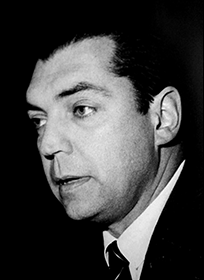
SERGIO MOLINA SILVA
DEAN
Dr. Molina was Dean for a two year period.
-
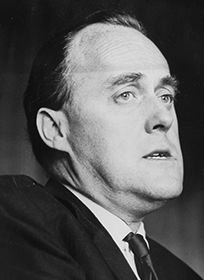
EDGARDO BÖENINGER
DEAN
Edgardo Böeninger served as Dean until 1969, when he became Rector of the University, a position he held until 1973.
During Dr. Böeninger’s time as Dean the University underwent a thorough reform process, which in the case of what is now the School signified changes including the setting up of a School Council (Consejo Normativo de Facultad). In 1967 new degree courses were created: Statistical Technician, Commercialization Technician, and Cooperative Technician.
-
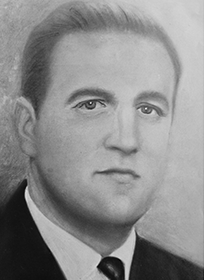
HUGO ZUNINO
DEAN
In 1971, the University Council created campuses in the north and west of the city, to which administrative tasks were relocated. The existing eastern campus began to host economics teaching as part of the Social Sciences School.
In 1972, a School of Economic and Administrative Sciences was set up on the eastern campus, complemented by Political Economy, housed on the northern campus.
-
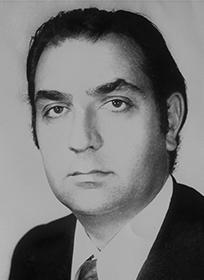
JOSÉ ELÍAS
DEAN
In this period, Professor José Elías became Dean of Economics and Administration, with Professor Roberto Pizarro as his counterpart in the School of Political Economy.
In 1973 the School of Political Economy was closed, and its students transferred to Economics and Administration.
-
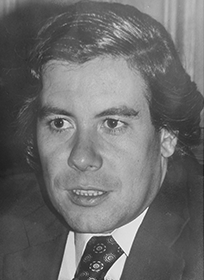
MARIO GÓMEZ PUIG
DEAN
During this time, the School of Public Administration was established, in 1977). In 1978 a new site was created: the School of Economic and Administrative Sciences took possession of modern tower block premises on Diagonal Paraguay street in the center of Santiago.
-
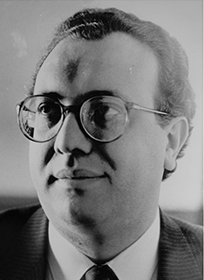
ÁLVARO SAIEH
DEAN
Dr. Saieh was in post until 1981.
-
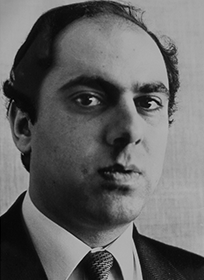
JORGE SELUME
DEAN
During this administration, statutes were drawn up for the School of Economics and Administration.
-
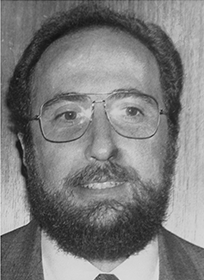
SERGIO MELNICK
DEAN
This is the period during which an ICU alumni association was created, to assist Commercial Engineering graduates and develop extracurricular activities.
-
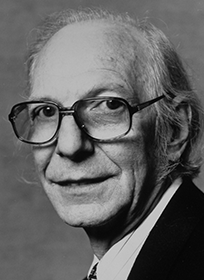
OSCAR JOHANSEN
DEAN
The School of Public Administration was separated off and transferred to the Political Science Institute. In 1989 the Department of Information Systems was created, and in 1990 the degree of Information and Management Control Engineering came into being. In the same year, Accountancy and Auditing became a daytime course.
-
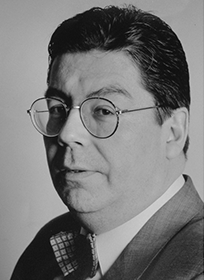
LUIS RIVEROS
DEAN
Professor Luis Riveros became Dean but was elected Rector of the University, and so had to be replaced.
-
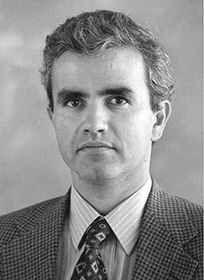
RICARDO PAREDES
DEAN
During this time the Graduate School installations and facilities were overhauled, to provide a modern study environment.
-
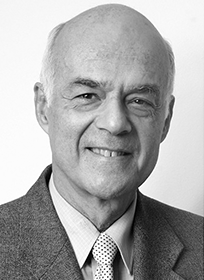
JOSEPH RAMOS QUIÑONES
DEAN
Professor Ramos’s time in charge is particularly notable for an intensive process of renewal of infrastructure, technology, and curricula, the first such major overhaul in 15 years. The internationalization of the School began, evidenced for example in the introduction of obligatory study of English for its students.
The School’s name was changed to ‘School of Economics and Business’, to better reflect its evolving identity.
The year 2005 saw the construction of a new building, the TecnoaulasCorpBanca Hall, specially designed for undergraduate teaching and for research. It is one of the most modern and best equipped facilities of its kind in the country.
-
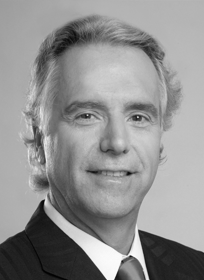
FELIPE MORANDÉ LAVÍN
DEAN
Professor Morandë continued the process of modernizing infrastructure, overseeing the introduction of a state of the art gym and professional standard climbing wall, and improvements to catering facilities for students. Considerable sums of money were made available by the Luksic Foundation to begin construction work on what would become one of the country’s best appointed libraries. Plans were also drawn up for the construction of another new building to continue the renovation.
In 2007 the Economics Department’s academic journal ‘Estudios de Economía’ was incorporated into the ISI list of ranked peer review journals, becoming the first economics journal to be awarded such recognition. This gave us preeminent and unique status in Chile, as other prestigious national journals, such as those belonging to the Pontificial Catholic University, and of the Central Bank, had applied for recognition but were not successful. Our journal proved to be one of only three in the whole of Latin America that were incorporated by ISI in that year.
In 2009 we signed an agreement with ProChile, allowing our students to carry out their professional practice placements overseas. The agreement was decisive in fully internationalizing our student body, which has subsequently travelled to a host of different countries and cultures in Asia, Europe, and the rest of the Americas.
The School launched a memoir of its past economists, a substantial research work that traces the history and trajectory of our economists over the course of the 75 years since the discipline was founded. The book was complemented by a website hosting back editions of the Estudios de Economía journal, School photographs, and landmark publications in our history (memoria.econ.uchile.cl).
-
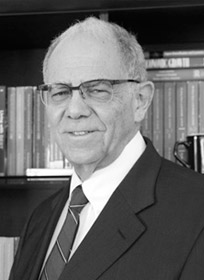
MANUEL AGOSIN
DEAN
2010-2014
During this first tenure as Dean, the Andrónico Luksic Library was inaugurated and the new ‘Corporate Z’ building, which houses our administrative personnel, was completed.
A curricular reform was carried out, revising and updating study plans to reflect the most recent thinking in the discipline and associated professions.
In 2012 the Priority Admissions Scheme to Address Educational Inequality (SIPEE, in its Spanish acronym) was created to improve access for students from technical and vocational educational backgrounds.
The MBA association ‘AMBA’ renewed our MBA program accreditation for a further five year period. AMBA is one of the three major accreditation bodies in the field of graduate business education.
Our degree in Information and Management Control Engineering was awarded a six year accreditation (September 2014-September 2020) by the professional accreditation agency of the Association of Chilean Engineers.
-
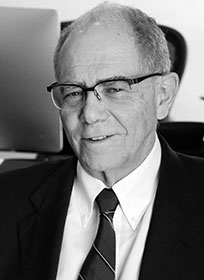
MANUEL AGOSIN
DEAN
2015-2018
During this period the master plan for improvement and expansion of the School continues to be implemented. A range of infrastructure works have been carried out to improve efficiency and quality of usage, these include the extension of the gym and renewal of equipment; the addition of a multi-purpose playing surface, a synthetic pitch, a modern computer lab, and the provision of first class IT equipment in classroom spaces.
Our international character has been emphasized further through the promotion of student exchange, uptake of which has tripled in recent years. We have set up more than 100 exchange agreements with some of the world’s most prestigious universities, and have encouraged our students to acquire a good command of English: over 30 courses are taught through the medium of English, and we offer three programs for study of English overseas.
The School was accredited in 2015 by the Association to Advance Collegiate Schools of Business, AACSB, becoming one of the first public universities in Latin America to be recognized in this way. This certifies that its academic programs and institutional processes both meet the highest international standards.
-
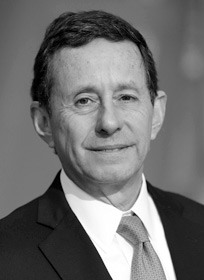
JOSÉ DE GREGORIO
DECANO
2018-Actual
Asume José De Gregorio, profesor Titular de la Universidad de Chile, ex presidente del Banco Central y tri ministro en las carteras de economía, minería y energía.
Durante el periodo que lleva como Decano, el profesor De Gregorio inauguró la Oficina de Género y Diversidad Sexual, una de las unidades pioneras en esta materia dentro de la U. de Chile
Debido a su experiencia como economista internacional ha contribuido a afianzar lazos con las principales universidades del mundo, así como a mantener la posición de liderazgo como una de las facultades de economía y negocios líderes dentro de la opinión pública.
Además, durante su gestión ha impulsado y logrado ratificar a la FEN como Campus sustentable. El objetivo fundamental es formar futuros profesionales responsables y ciudadanos integrales, a través de la sustentabilidad en todo su quehacer: formación curricular, vinculación y sociedad, difusión del conocimiento y gestión organizacional.
- ..